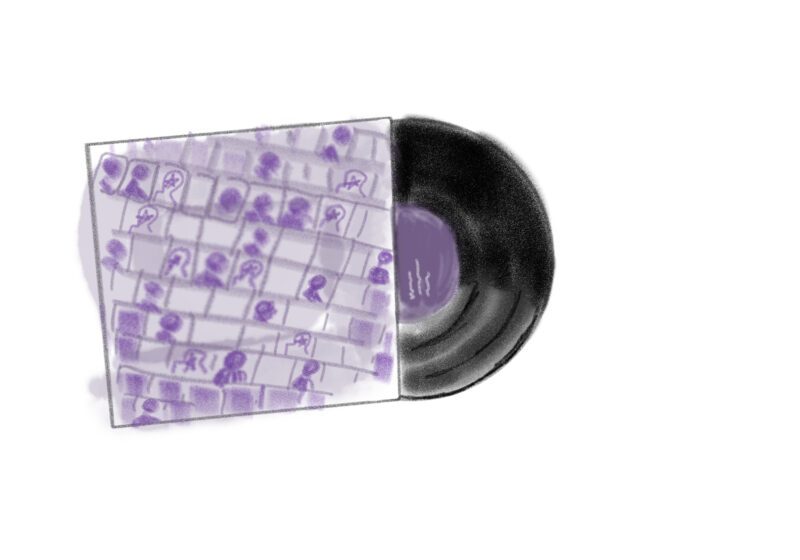Last week, New York City Police Commissioner Ray Kelly went to Brown University to give a lecture on “Proactive Policing in America’s Biggest City.” He was met by more than 100 students and community activists who disrupted the meeting to the point that it had to be canceled. This type of behavior is in direct contradiction to the idea of free speech that is supposed to be found on college campuses. More importantly, this behavior is also illegal.
Upset by the surveillance of Muslims and of the use of stop-and-frisk practices by the NYPD, the protestors conspired to prevent Commissioner Kelly from exercising his right to free speech and also prevented open-minded audience members from hearing what he had to say. I’m not going to debate whether or not the protestor’s grievances were justified, as I would rather elucidate the multiple legal implications of their actions.
When Brown officials asked protesters to allow Kelly to speak and reserve their comments until a question-and-answer session, the protestors refused. Brown student and protest organizer Jenny Li called this disobedience a “powerful demonstration of free speech.” This couldn’t be further from the truth, as shouting down someone else is not a legitimate use of free speech. Ms. Li seemed to acknowledge this, apparently without realizing she was contradicting herself, when she said about the administration’s decision to continue the lecture, “We decided to cancel [the lecture] for them.” Brown University President Christina Paxson was right in saying, “The conduct of disruptive members of the audience is indefensible and an affront both to civil democratic society and to the university’s core values.”
Brown isn’t the first university to be faced with this problem, though. A similar incident occurred at UC-Irvine in 2010, resulting in 10 students being convicted of conspiring to disturb and disrupt a meeting and speech, which is a misdemeanor in California under Penal Code § 403. Rhode Island has a similar law that could be applied in the Brown case, as well as a lesser charge of disorderly conduct.
At one point in the protest, a relatively large protestor acted aggressively and in a threatening manner toward a female administrator when asked to “please stop shouting.” This “threatening” and “tumultuous” behavior could warrant charging him with disorderly conduct pursuant to Rhode Island Penal Code § 11-45-1. However, the sentence for this crime is not to exceed six months imprisonment, so it may send a better message to hit him, and every other disruptive protestor, with the charge of disrupting the meeting.
Technically, the charge would be disturbance of public assemblies generally (§ 11-11-1). This charge carries with it a maximum sentence of one year imprisonment. The egregious nature of the protestors actions warrant a harsher penalty in my opinion, so this is the path I would pursue.
Furthermore, if one watches the video of the ordeal, it is obvious that the disruptions were planned as a group and well in advance, with numerous protestors reading scripted material in a predetermined order. The routine was choreographed by the protest organizers, one of whom is known to be the aforementioned Ms. Li. Since “every person who shall conspire with another to commit an offense punishable under the laws of this state shall be subject to the same fine and imprisonment,” many of the protestors not directly guilty of the crimes listed above could be charged with conspiring to disturb a public assembly, thus earning them the same sentence of one year imprisonment (§ 11-1-6).
As I have shown, there are ways to deal with criminal dissident elements in both the student body and the community, so why hasn’t the District Attorney in Providence charged anyone yet? Radicals cannot be allowed to shutdown meetings, discussions and other forums promoting dialogue merely because they are opposed to a certain policy, person, or country. Free speech is not allowed to flourish in this type of environment, where anarchists terrorize authority figures trying to ensure respectful dialogue. It would be a shame if these criminals went unpunished for their actions.
Ondo is a member of
the class of 2014.
library
UR Libraries show ways to find books for free
There are three main options for students to find low-to-no cost course materials: Course Reserves, UR and Public Libraries, and open web sources.
addiction
URMC provides opioid overdose prevention training
Naloxone displaces the opioid from the brain receptors, which stops the effects of the overdose for sixty to ninety minutes. This allows time for a hospital to intervene.
Ambient
Tim Hecker: Revisiting a Masterpiece
Ambient is one of the more abstract and hard-to-judge genres, with some works consisting of unchanging drones for the entirety of their runtime.



